
Indian Council of World Affairs
Sapru House, New DelhiDemocratic transition in West and Central Africa: An Overview
Abstract:
The year 2019 has been marked by most African countries ranging from north to south and east to west holding their presidential and legislative elections. In Senegal, DRC, Guinea Bissau and Benin, polls were conducted peacefully and large number of voters turned up on the Election Day. Given that Africa’s population is relatively young with 43 percent below the age of 15, youth participation in the election process was keenly targeted Strengthening security also features as the top agenda in the election manifestos of all governments in the region.
The year 2019 has emerged as a turning point for political landscape in Africa. It is marked by most African countries ranging from north to south and east to west holding their presidential and legislative elections. Countries like Democratic Republic of Congo, Senegal, Nigeria, Guinea Bissau, Benin, have already undergone elections in the beginning of this year whereas Mauritania, Malawi, Chad, Botswana, Tunisia, Algeria, Mozambique are gearing up for presidential and parliamentary elections in the later part of the year.
This whole process of democratic transition has significance not only for the continent, but have the potential to influence globally. All major powers of the world such as the US, France, China, Russia, and Germany have closely observed and monitored elections in Africa because of their high stakes in the continent. The paper will examine the key trends observed in the elections occurred in Central and West Africa and also discuss the key issue in the forth-coming election in Mauritania.
Trends observed during these elections
The process of democratisation in west and central African countries is attributed by higher turnout of voters, adequate election materials and less number of violent attacks during election process. Major trends observed are peaceful transfer of power despite few challenges, youth inclusion in election process and security as a major concern for all these countries.
- Peaceful transfer of power despite few challenges
Senegal
On 24 February 2019, 6.5 million registered voters casted their votes in Africa’s most stable nation, Senegal. The incumbent President Macky Sall from the Party Alliance for the Republic was re-elected for a second term with 58 percent of votes. The major factors behind his win were country’s steady economic growth and infrastructural development.
President Macky Sall came to power in 2012 by defeating Abdoulaye Wade, who was in power for twelve years. After coming to power, Macky Sall implemented an ambitious vision of “An emerging Senegal in 2035” that supported three pillars of economic transformation, well-being and good governance. His idea of emerging Senegal had aimed to remove corruption and develop glittering infrastructure in the country. As promised, the first phase of the Plan during 2014-2018 witnessed 27 infrastructure projects and 17 structural reforms, building of highways, train lines and a new international airport in Dakar and creation of a new city near the airport called Diamniadio, all these indicated successful implementation of projects. The phase also culminated in high economic growth with 6.8 percent in 2018. The second phase would cover the period 2019-2023.
Image 1
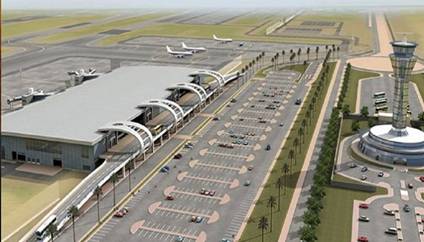
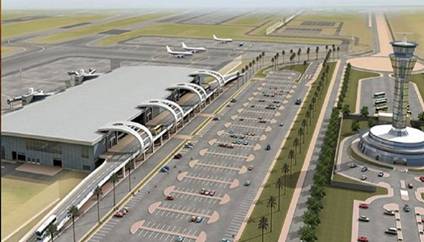
(Senegal’s new airport Blaise Diagne International Airport, Source: http://africa-businesspages.com/senegal-set-open-new-575-million-airport/)
Despite this, many analysts observed that the reason for outright victory of Macky Sall is the lack of viable opposition as two of his major challengers Dakar Khalifa and Karim Wade were barred from contesting the polls on account of corruption charges.1 The remaining candidates- former Prime Minister Idrissa Seek and youngest candidate Ousmane Sonko condemned the result of the election and highlighted that the media including the foreign media declared Macky Sall as the winner even before the proclamation of final results at the Constitutional Council.2All these allegations by the opposition however, proved to be futile when National Vote Counting Commission on 28 February announced the decisive victory of incumbent President Macky Sall with 2,555,426 votes as against his main contender Idrissa Seck who received 899,556 votes.
Image 2
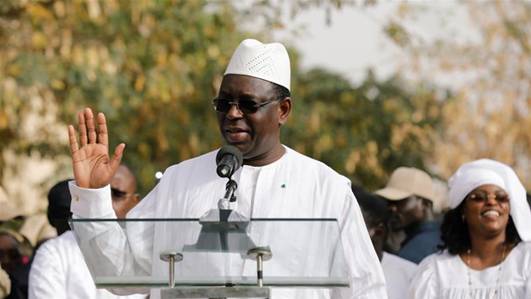
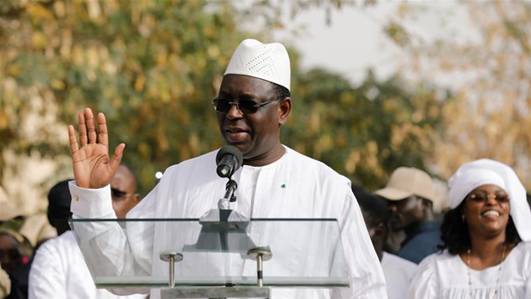
(Incumbent President Macky Sall winning a second term, Source: https://www.france24.com/en/20190228-senegal-president-macky-sall-wins-election-preliminary-results)
Senegal’s 2019 election is termed as quite peaceful as compared to the presidential election held in 2012. There were huge protests on the streets of Dakar in 2012 with the decision of then Senegalese President Abdoulaye Wade who sought a re-election after being in power for twelve years. However, in the recent presidential election, no such major occurrences took place. Even international observer such as Elena Valencianco, head of the Electoral Observer Mission at the European Union remarked about the positive performance of Senegal’s election.3
Democratic Republic of Congo
Democratic Republic of Congo, one of the most significant and largest countries in the region witnessed the first historic transfer of power on 10 December 2018. This election is the testimony of beginning of democracy in the country as its longest reigning ruler Joseph Kabila made an exit after 18 years of being in power. 60.04 percent out of 40 million registered voters turned out on the day of voting which went quite peacefully, the aftermath of the election had few disturbances. This was attributed to the confusion of the Election Commission which did not declare the result, delaying by a week.During this period, there appeared much apprehension among Congolese population over the winner of the election. A close competition a close competition between Martin Faylu of Lamuka opposition alliance and Felix Tshisekedi from Union for Democracy and Social Progress (UDPS) was predicted. The situation was further constrained with the meddling of Catholic Chruch that announced Martin Faylu as the winner in the Presidential election reported by international media4. However, this whole political drama ended with the declaration of Felix Tshisekedi as the winner by the National Independent Electoral Commission (CENI) who received 38 percent against Martin Fayulu obtaining 34.7% of the votes.
Figure 1
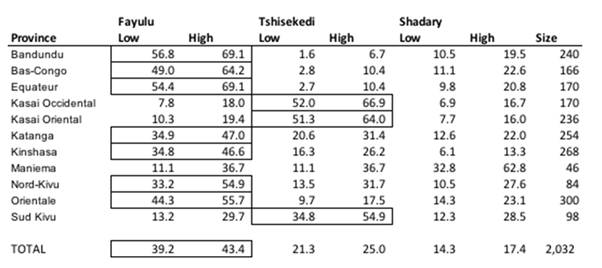
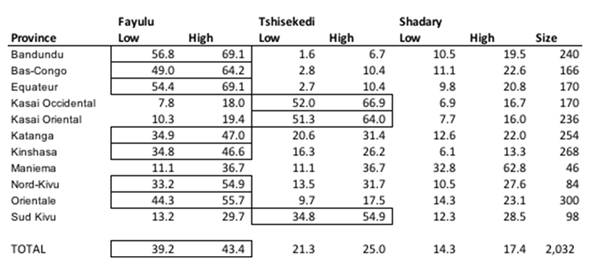
(Source: https://africanarguments.org/2019/01/10/drc-election-results-analysis-implausible/)
Eventually, the Constitutional Court affirmed the declaration, dismissing a poll petition raised by Martin Fayulu. This is an indicative of DRC’s recent important Presidential election which altered power structure in the country, was not without theatrics.
Guinea Bissau
Another West African country Guinea Bissau went for legislative elections on 10 March 2019. Almost 760,000 registered voters out of 1.9 million people cast their votes to elect 102 representatives in the parliament which remained unstable from 2015 to till this election.
In the year 2015, political crisis began in the country with President Jose Mario Vaz from African Party for the Independence of Guinea and Cape Verde (PAIGC) who dissolved the government headed by the Prime Minister Simoes Pereira Vaz. One of the most striking aspect of this fragmentation was the withdrawal of 15 members supporting PAIGC and the party lost the majority in the parliament. Meanwhile, Cipriano Kassama, the Speaker of the Parliament refused to cooperate with the president. This conflict led to the political and constitutional crisis in Guinea Bissau. The President Jose Mario Vaz appointed numerous parliamentarians as the Prime Minister such as Carlos Correia , Baciro Djá ,Umaro Mokhtar Sissoco Embaló , Augusto Antonio Artur Da Silva with the hope of resolving the conflict, but none of them survived in the long run. Lately in 2018, President Jose Mario Vaz appointed Aristides Gomes as the Prime Minister to end political deadlock. Therefore, the outcome of this legislative election in which the ruling party PAIGC — the African Party for the Independence of Guinea and Cape Verde as the winner that occupied 47 out of 102 is very important to bring certain stability after a long period of instability.
Benin
Benin retained its position as a democratic nation with the successful conduct of legislative election on 28 April 2019. Around five million people cast their votes to select 83 representatives for the Unicameral National Assembly.
Image 3
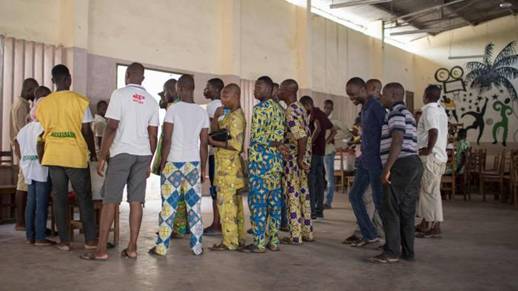
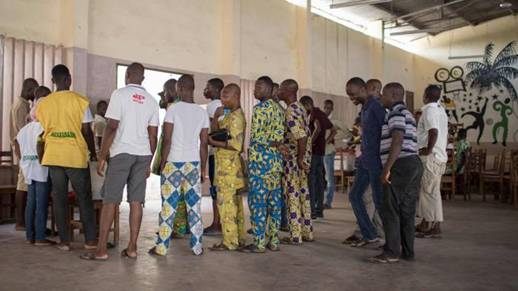
(Low voter turnout in Benin, source: https://www.ft.com/content/7fc32690-6bff-11e9-80c7-60ee53e6681d)
Although election was carried out peacefully, there were huge protests in the streets of Benin in early March 2019. The protest was against the decision of the Electoral Commission that excluded five major parties from contesting the polls. Various political analysts criticised this move of the Electoral Commission and blamed that the incumbent President Patrice Talon’s ulterior motive of giving consent to his loyal parties to participate in the election. The two major parties as decided by national electoral commission (CENA) to contest elections were Progressive Union, headed by Bruno AMOUSSOU and Republican Bloc led by Jean-Michel ABIMBOLA. The protest was held by distinguished political personalities and civil society activists such as Thomas Boni of Cowry Forces for an Emerging Benin (FCBE), Sebastien Ajavon Social Liberal Union (USL), Eric Houndete, Parliament’s deputy leader in Cotonou. They condemned lack of freedom of Beninese population on account of President Patrice Talon’s strategy of centralising his power. It was only in early March; one month before the elections that institutional reforms took place which resulted in the banning of opposition parties which were critical of the government. The allegation made by them against the government has raised questions on the credibility of the democratic process in Benin.
Youth inclusion in Election process
Youth inclusion in politics has remained a focal point in all these major elections. Given that Africa’s population is relatively young with 43 percent are below the age of 155, youth participation in the election process was keenly targeted. The electoral parties made full use of social media played a major role to ensure youth participation in electoral process. In Senegalese election, the youngest candidate Ousmane Sonko aged 44 garnered youth attention in his active social media campaign and received 15.67 percent of votes, the third highest in the race. Sonko’s election agenda reflected a brand new policy for Senegal, i.e., to drift away from the colonial rulers. Sonko questioned existing Senegal’s policy of relying on foreign investment particularly that of France and its usage of French franc even after the end of colonial era in 1960. His election campaign advocated gradual replacement of CFA franc with a domestic currency. Sonko’s policies have appealed to the youth and Diaspora communities and he had huge youth followers and had youth volunteers on Facebook and Twitter.
Not only in social media, African youth actively participated in demonstrations ahead of the elections. During Guinea Bissau’s election, students protested vehemently as the teachers strike halted the education sector. The Parliamentary crisis in the country delayed implementation of budgetary proposals and legal precedents, the worst affected are the students as teachers kept on going strikes on account of government’s inability to pay back wages.6
Image 4
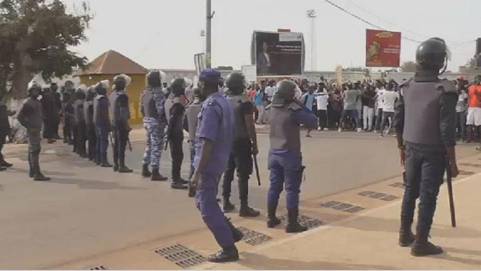
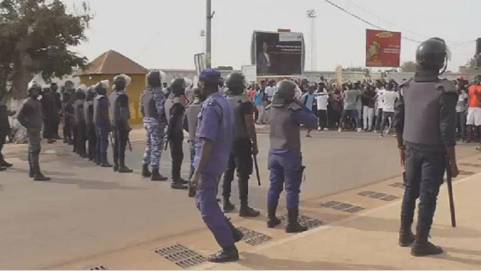
(Student protest in Guinea Bissau, Source: https://www.africanews.com/2019/02/09/guinea-bissau-students-protest-over-threat-by-teachers-to-strike//)
- Security as major concern
West Africa region has witnessed deadly terror attacks, which is attributed to a number of jihadist groups in West and Central African regions. Insurgency of the Islamist militant groups such as Boko Haram, its offshoot ISIS-West Africa (ISIS-WA) affiliates and various jihadist groups adhered to Al-Qaeda and Islamic State frightened the entire region and its various governments. Strengthening security through counter-terrorism strategies features as the top agenda in the election manifestos of all governments in the region.
In 2018, Senegal organised the biggest terrorism trial where 29 people were accused of spreading the ideology of Islamic State7.Senegalese government recognised that the absence of effective security management in the border areas created security vulnerabilities in the country8. During election campaign, President Macky Sall put significant focus on security to halt cross-border terrorism.With regard to DRC, it was reported that Islamic State would strive to establish its foothold in these areas where central government had limited resources to tackle terrorist attacks.9After winning the election, the newly elected President Felix Tshisekedi articulated strengthening security as a major area of focus in his ‘change agenda’ along with dealing with corruption and human right abuses.10Despite his promises, the country witnessed the first attack from IS claimed group known as Allied Democratic Forces(ADF), which had origins in Uganda on 18 April 2019 that killed eight people in anarmed camp in Kamango village, Beni city situated in the north Kivu Province. It is noteworthy to mention that Beni is one of the three cities where people were barred from casting votes due to the Ebola outbreak. Analyst observes that the threat is such that Tshisekedi’s government should take effective measures especially for regional security cooperation with Uganda to combat terrorist threats and uphold peace in the region.11
Image 5
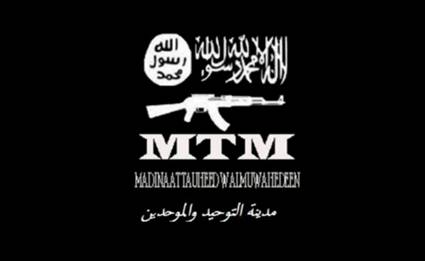
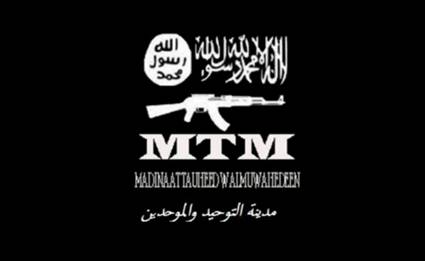
(The flag of ADF with a new name “Madina at Tauheed Wau Mujahedeen (MTM) – The City of Monotheism and Holy Warriors”, indicated its close links with Islamic State, Source: https://thedefensepost.com/2018/12/04/tentative-ties-allied-democratic-forces-isis-dr-congo/)
Being one of the smallest countries in Africa, the legislative election in Guinea Bissau is significant in terms of security. It has been a victim of civil wars and political uncertainty, faced 16 coup attempts and the coastal areas of the country have become a safe haven for drug trafficking. There is only but dim hope that legislative election might settle the political conflict in the country that has disrupted its political institutions and economy for years.
Forthcoming election
On 22 June 2019, another West African country Mauritania will hold Presidential election. It would be a decisive election for Mauritania as the country’s current President Mohamed Ould Abdel Aziz from the dominant Union for the Republic would step down after being in power since 2009. There was wide criticism against President Mohamed Ould Abdel Aziz who abolished the Mauritanian Senate, altered country’s flag and National Electoral Commission in 2017 by conducting a referendum where 53.73 percent of the 1.4 million Mauritanians casted their votes. Although the President cited logistical challenges for closing down the Senate and introduced regional electoral council to encourage local voice in his administration, many political analysts remarked that Abdel Aziz was making the ground for a third term in the power. Hence, his move of stepping down from the presidential race bewildered the opposition parties and political activists. However, the office of the President on 29 January 2019 recommended former defence minister Mohamed Ould Cheikh Mohamed Ahmed, close aide of Abdel Aziz as the potential candidate. This has generated scepticism among Mauritanian population on the legitimacy of the election. There is also likelihood of the ruling party Republic Union manipulating the electoral process as it unilaterally won legislative, regional and local elections held in 2018.
Image 6
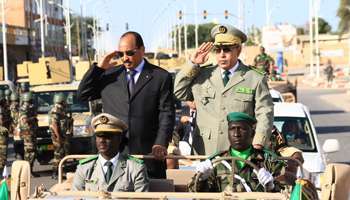
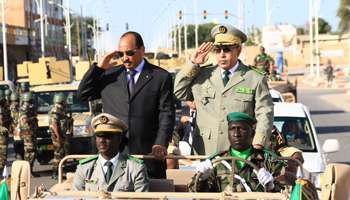
(President President Mohamed Ould Abdel Aziz (left) and defence minister Mohamed Ould Cheikh Mohamed Ahmed, Source: https://www.menas.co.uk/blog/president-mohamed-ould-abdel-aziz-indicates-his-successor/)
Amidst these concerns, there is a positive indicator in Mauritanian political scenario with the emergence various protests and demonstrations from the common Mauritanians, who had been fed up with the leadership. Repression of critics of the government often put the centralised institution on pedestal bearing no accountability towards the common people. Therefore, leadership of opposition parties, various civil society groups overwhelmingly protested and threatened to boycott the election. Even, a coalition of opposition parties met with the interior minister demanding to dissolve the current Election Commission. All these factors fuelled the hope for a free and fair election in the country. Besides, the legislative and municipal elections held in September 2018 which witnessed participation of 98 parties and registered electorate of 1.4 million further installed the hope on the democratic process.
The major issues in this election are the same as other West African countries such as low rate of economic growth, unemployment, corruption. However, unlike Senegal and DRC, as reported by the media, Mauritanian youth refused to believe in the democratic process given the huge rate of unemployment that stands at around 39 percent.12 It is likely that there would not be much youth participation in Mauritanian presidential election although they account nearly 60 percent out of 4.5 million populations. The most important issue that has serious implication for this forthcoming election is the terrorist threats. Many analysts argue that there would be the revival of jihadi activism in Mauritania with the release of Communiqué from Al-Qaeda in Islamic Maghreb’s that described foreigners as the possible targets13.Under the current President Ould Abdel Aziz, the country had made tremendous progress in the fight against terrorism. Therefore, it remains to be seen how the newly elected President could deal with rise of terror threats in the country.
Conclusion
In most countries, polls were conducted peacefully and large number of voters turned up on the Election Day. Apart from Benin, voter participation rate was acceptable in comparison to previous elections. Guinea Bissau witnessed the highest voter turnout with an average 84.69 percent whereas voter turnout in Senegal, DRC and Benin were 66.23 percent, 67.04 percent and 23 percent respectively. Many analysts reiterated that the non participation of opposition in the Benin’s legislative election as the sole reason for low voter turnout as the Constitutional Court affirmed only two parties qualified to contest polls. Hence, if we observe all these elections, one visible trend is that the so-called transition of power has become a myth. This is so because in case of the above countries, there was hardly any strong opposition, which constitute a key factor of democracy. This virtually highlights the practice of democratic gerrymandering. We cannot overlook the fact that leadership in these countries tend to manipulate electoral outcomes and there is a possibility of them becoming authoritarian in near future.
***
* The Authoress, Research Fellow, Indian Council of World Affairs, New Delhi..
Disclaimer: The views expressed are that of the Researcher and not of the Council.
Endnotes
1Adeoye, A. “Senegal President MackySall Officially wins re-election”, CNN, 6 March 2019, Accessed 2 April 2019, URL: https://edition.cnn.com/2019/03/06/africa/senegal-president-sall-re-election-intl/index.html
2“Senegal: 2 Main opposition candidates contest Sall’s victory claim”, Africa News, 25 February 2019, Accessed on 15 March 2019, URL: https://www.africanews.com/2019/02/25/senegal-2-main-opposition-candidates-contest-sall-s-victory-claim/
3 “Senegal’s Macky Sall in Sweeping Election Victory”, Daily Nation, 1 March 2019, URL: https://www.nation.co.ke/news/africa/Senegal-Sall-in-sweeping-election-victory/1066-5003934-6q2mu1/index.html
4“Recap of DRC’s 2018 polls 2: Voting, delayed results, ‘shock’ winner”, Africa News, 1 February 2019, Accessed 15 April 2019, URL: https://www.africanews.com/2019/02/01/recap-of-drcs-2018-polls-2-voting-delayed-results-shock-winner//
5Langdon, S. et al. (2018), African Economic Development, Routedge : New York, Pages7-35
6Guinea-Bissau: students protest over threat by teachers to strike”, Africa News, 9 February 2019, Accessed on 3 March 2019, URL:https://www.africanews.com/2019/02/09/guinea-bissau-students-protest-over-threat-by-teachers-to-strike//
7“Islamist terrorist groups are turning their attention to West Africa”, The Washington Post, 3 July 2018, Accessd 5 April 2019, URL: https://www.washingtonpost.com/news/worldviews/wp/2018/07/03/islamist-terrorist-groups-are-turning-their-attention-to-west-africa/?utm_term=.a29da5fd3b2a
8“Country Reports: Africa”, US Department of State, Accessed 9 April 2019, URL: https://www.state.gov/j/ct/rls/crt/2017/282841.htm
9“ISIS Claims First Attack in the Democratic Republic of Congo”, New York Times, 19 April 2019, Accessed 24 April 2019, URL:https://www.nytimes.com/2019/04/19/world/africa/isis-congo-attack.html
10“Tshisekedi could transform DRC into a 'truly democratic' country: United States”, Africa News, 5 April 2019, Accessed 10 April 2019, URL: https://www.africanews.com/2019/04/05/tshisekedi-could-transform-drc-into-a-truly-democratic-country-united-states//
11 “ISIS Claims First Attack in Democratic Republic of Congo”, The new York Times, 19 April 2019, URL: https://www.nytimes.com/2019/04/19/world/africa/isis-congo-attack.html
12 “Students arrested in protests over university age limit”, University World News, 18 October 2018, Accessed 5 May 2019, URL: https://www.universityworldnews.com/post.php?story=20181016131401818
13Porter, G. (2018), “ The Renewed Jihadi Threat in Mauritania”, CTC Sentinal, 11(7), Accessed 25 April 2019, URL: https://ctc.usma.edu/renewed-jihadi-terror-threat-mauritania/















